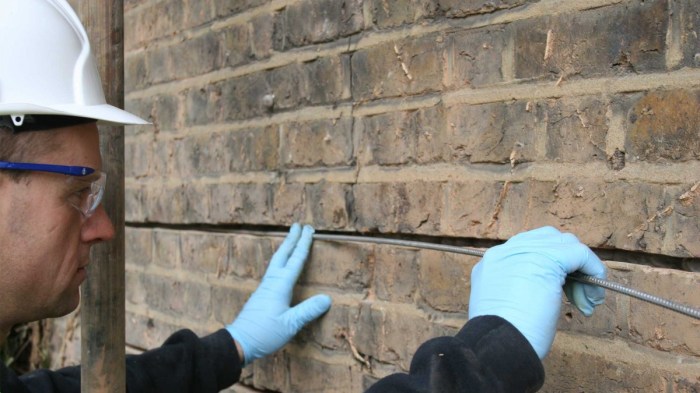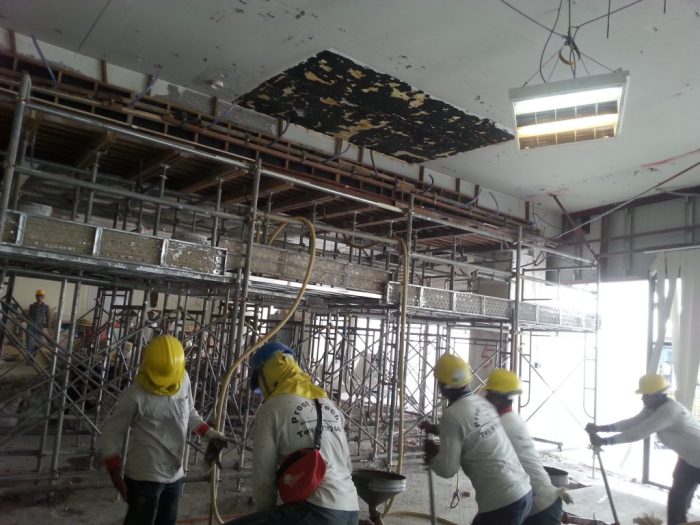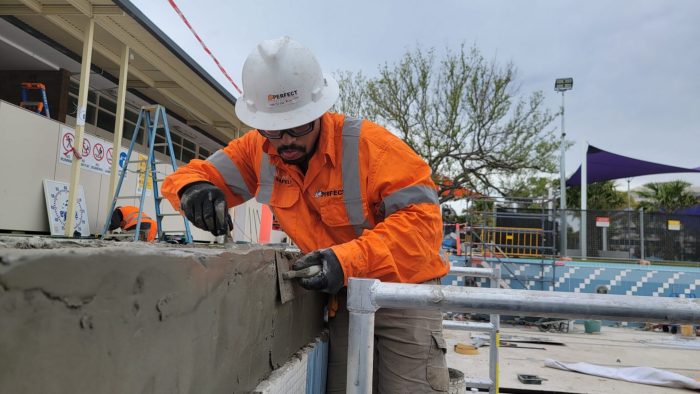Exploring the World of Structural Repair Contractors
Structural repair contractors play a vital role in the construction industry, ensuring the integrity and safety of buildings and structures. From diagnosing issues to implementing solutions, these professionals are the backbone of any successful repair project. Dive into the realm of structural repair contractors as we unravel the intricacies of their work with a mix of clarity and depth.
As we delve deeper into the services, qualifications, materials, and tools used by structural repair contractors, you'll gain a comprehensive understanding of this essential aspect of construction and maintenance.
Overview of Structural Repair Contractors

Structural repair contractors are professionals who specialize in repairing and restoring structural elements of buildings and infrastructure. Their expertise lies in identifying, assessing, and resolving issues related to the stability and integrity of various structures.
Role of Structural Repair Contractors
- Structural repair contractors play a crucial role in the construction industry by ensuring the safety and durability of buildings and infrastructure.
- They are responsible for inspecting and diagnosing structural problems, formulating repair plans, and implementing necessary solutions.
- These contractors work closely with engineers, architects, and other construction professionals to address structural issues effectively and efficiently.
Importance of Hiring Qualified Structural Repair Contractors
- Hiring qualified structural repair contractors is essential to ensure that repairs are carried out correctly and in compliance with building codes and regulations.
- Qualified contractors have the expertise and experience to accurately assess structural issues and recommend appropriate repair methods.
- By hiring qualified professionals, property owners can have peace of mind knowing that their structures are in good hands and that repairs will be done to the highest standards.
Services Offered by Structural Repair Contractors

Structural repair contractors offer a range of services to address various issues that may arise in residential or commercial buildings. These services are essential for maintaining the integrity and safety of the structure.
Assessment and Diagnosis of Structural Issues
Structural repair contractors begin by conducting a thorough assessment of the building to identify any underlying structural issues. This involves inspecting the foundation, walls, roof, and other structural elements to pinpoint areas of concern. Through this evaluation, contractors can determine the root cause of the problem and develop an effective repair plan.
Techniques for Structural Repair
Once the assessment is complete, structural repair contractors use a variety of techniques to address the identified issues. This may include:
- Foundation Repair: Contractors may use methods such as underpinning, helical piers, or slabjacking to stabilize and reinforce the foundation.
- Wall Reinforcement: Techniques like carbon fiber reinforcement or wall anchors can be employed to strengthen walls and prevent bowing or cracking.
- Waterproofing: Contractors may apply waterproof coatings or install drainage systems to protect the structure from water damage.
- Crack Repair: Various methods, such as epoxy injection or grouting, can be used to repair cracks in concrete or masonry.
- Structural Strengthening: Contractors may install steel beams or braces to enhance the overall stability of the building.
By utilizing these techniques and other specialized methods, structural repair contractors can effectively address a wide range of structural issues and ensure the longevity of the building.
Qualifications and Certifications

To become a structural repair contractor, individuals typically need a combination of education, training, and experience in the construction or engineering field. A high school diploma or equivalent is usually required, along with relevant coursework in construction, engineering, or a related field.
Some contractors may also pursue a bachelor's degree in civil engineering or a related discipline to enhance their knowledge and skills.
Importance of Certifications
Certifications play a crucial role in the field of structural repair as they demonstrate a contractor's expertise and competence in specific areas. They validate the contractor's knowledge of industry standards, safety regulations, and best practices, giving clients confidence in their abilities.
Additionally, certifications can help contractors stand out in a competitive market and may be required by certain organizations or projects.
- ACI Certification: Offered by the American Concrete Institute, this certification focuses on concrete repair and restoration techniques. Contractors with ACI certification have demonstrated their proficiency in concrete construction and repair.
- NACE Certification: The National Association of Corrosion Engineers offers certifications for professionals involved in corrosion prevention and control. Contractors with NACE certification are equipped to handle corrosion-related issues in structural repair projects.
- ICC Certification: The International Code Council provides certifications for building code compliance and inspection. Contractors with ICC certification are well-versed in building codes and regulations, ensuring that repairs meet the necessary standards.
Materials and Tools Used in Structural Repairs
In structural repair projects, contractors utilize a variety of materials and tools to ensure the integrity and stability of buildings. The choice of materials and tools plays a crucial role in determining the quality and longevity of the repairs.
Common Materials Used by Structural Repair Contractors
- Concrete: Used for repairing cracks, strengthening foundations, and filling gaps in structures.
- Steel: Provides additional support and reinforcement in structural elements.
- Epoxy Resins: Used for bonding, filling, and sealing cracks in concrete and masonry.
- Wood: Utilized for repairing wooden structures and components.
- Grout: Used for filling voids and gaps in masonry and concrete structures.
Various Tools and Equipment Needed for Structural Repair Projects
- Jackhammers: Used for breaking up concrete and masonry surfaces.
- Drills: Essential for creating holes for anchoring and fastening materials.
- Saws: Used for cutting and shaping materials such as wood and metal.
- Leveling Tools: Ensure that repaired surfaces are even and properly aligned.
- Rebar Cutters and Benders: Essential for shaping and installing reinforcement bars.
Impact of Materials and Tools on Structural Repairs
The choice of materials and tools can significantly impact the quality and durability of structural repairs. Using high-quality materials ensures long-lasting results and prevents the need for frequent repairs. Similarly, utilizing the right tools and equipment improves the efficiency and accuracy of the repair process, leading to a more stable and secure structure.
Last Point
In conclusion, structural repair contractors are the unsung heroes who safeguard the structural stability of our built environment. Their expertise, coupled with a keen eye for detail, ensures that buildings stand the test of time. As you navigate the world of construction, remember the crucial role these professionals play in maintaining the safety and longevity of our structures.
Questions and Answers
What qualifications are needed to become a structural repair contractor?
Typically, a structural repair contractor needs a relevant degree in engineering or construction, along with specialized training in structural repair techniques.
How do materials and tools impact the quality of structural repairs?
The choice of materials and tools can significantly affect the durability and effectiveness of structural repairs. Using high-quality materials and advanced tools can ensure long-lasting results.




